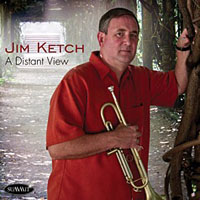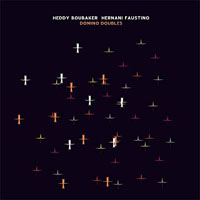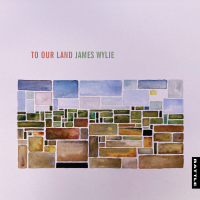Home » Jazz Articles » Catching Up With » Ahmad Jamal
Ahmad Jamal

Courtesy Jacques Beneich
You know, when people ask me which of my albums is my favorite, I always say "the next one." But I have to say, I'm playing this one a lot.
Sadly, Francis Dreyfus—a revered figure in the European record business, and a great supporter of Jamal's music—passed, aged 70, in June 2010.
More happily, in February 2012, Jamal has hit the sweet spot once more, this time on the Jazz Village label. Blue Moon is another exalted and exquisite outing. Listening to it, the world seems, for a precious while, a better place.
The photo above shows Jamal at New York City's Avatar Studio in October 2011, during the Blue Moon sessions. Standing behind him, left to right, are percussionist Manolo Badrena, bassist Reginald Veal, producers Seydou Barry and Catherine Vallon-Barry, and drummer Herlin Riley.
All About Jazz: It's a beauty! It's been on the player every day for a fortnight and it's still revealing new charms.
Ahmad Jamal: You know, when people ask me which of my albums is my favorite, I always say "the next one." But I have to say, I'm playing this one a lot. To say otherwise would be dishonest.
It's a jewel, maybe because of what's going on in the group. It's difficult to merge drums and percussion—if the players don't have good chemistry between them it doesn't work. But Manolo Badrena knows just what to do, he and Herlin Riley fit right together.
AAJ: It's the first album you've recorded in New York for some time, isn't it?
AJ: I haven't recorded in New York City for years—and I was happy at Avatar. But there are fewer places like that today. They've gone out of business. This is the world we live in. There's just no record industry anymore.
That's the biggest change I notice between now and back then. Those pioneering guys like Francis Dreyfus, or Leonard Chess—who came over from Poland with his shoes in his hand and started a label that eventually sold for 52 million dollars—they're not around like they were. They've gone. A few of us are still able to come up with things that are successful in getting some attention. The youngsters have to make their own discs and sell them at gigs. It's a monumental change.
Of course, it's always the case, in any age, that youngsters have difficulties getting recognized. And there's always a few who can pierce the darkness and find the light.
AAJ: Would you say the music itself is getting more respect these days?
AJ: I would say that it is demanding more respect. The youngsters today are demanding more—better pianos, more opportunities to study the music, better venues to present the music in. Places like the Lincoln Center, those are the sort of places it deserves to be housed in.
The youngsters are demanding more respect, and hopefully they're getting more respect.
When I went over to Steinway Records with John Hammond Jr. all those years ago, I was only the third artist to become a Steinway artist. Before that, they only had John Lewis and Hazel Scott. They had all the European concert pianists, but only two from American classical music.
AAJ: Your use of "American classical music" rather than "jazz" is about respect.
AJ: Well, I'm not paranoid about "jazz," but to get respect you have to show respect. ACM better defines what we're doing. I coined the term years ago [Jamal released an LP titled American Classical Music in 1982]. I showed respect to the music by calling it ACM.
It's like certain ethnic groups wanting to go by a particular name, one that they are happy with, or feminists asking for "chairperson" rather than "chairman." Things change, and those wishes should be respected.
Like I say, I'm not paranoid about "jazz," but when the music emerged, they didn't expect it to get so sophisticated.
AAJ: You have three lovely originals on Blue Moon. How do you go about composing?
AJ: I never sit down and say, "I'm going to write." I sit down with the optimistic view that maybe I can be a receiving vessel. You see, I don't believe we're "creative." The most we can do is discover, receive. So I sit down and maybe I find a new chord and sometimes out of that something beautiful will come. That's how I got the arrangement for "Blue Moon." As soon as I heard that run I knew it was "Blue Moon."
It's spontaneous. My compositions write themselves. It's like, you get the germ of an idea, and it feels right, and the composition just emerges by itself.
AAJ: One last question. [Trumpeter] Miles Davis loved your music so much. He went out of his way to tell people how deeply he admired you. Many people would probably like to know whether he tried to get you to join his band.
AJ: No. I had my own group and at 21 [in 1951] that was enough. When I moved to New York City, Miles lived a block and a half from me, but we didn't hang out. We had a quality relationship, not a quantity relationship.
AAJ: Thanks for clearing that up. It's been a real pleasure talking to you. Good luck with the new album!
AJ: And to you too. Thank you.
Selected Discography
Ahmad Jamal, Blue Moon (Jazz Village, 2012)Ahmad Jamal, The Complete Ahmad Jamal Trio Argo Sessions 1956-62 (Mosaic, 2010)
Ahmad Jamal, A Quiet Time (Dreyfus, 2010)
Ahmad Jamal, It's Magic (Dreyfus, 2008)
Ahmad Jamal, Pavanne for Ahmad (FiveFour, 2007)
Ahmad Jamal, After Fajr (Dreyfus, 2005)
Tags
Ahmad Jamal
Catching Up With
Chris May
United States
Manolo [Badrena]
Herlin [Riley]
John Hammond
John Lewis
Hazel Scott
Miles Davis
PREVIOUS / NEXT
Support All About Jazz
 All About Jazz has been a pillar of jazz since 1995, championing it as an art form and, more importantly, supporting the musicians who make it. Our enduring commitment has made "AAJ" one of the most culturally important websites of its kind, read by hundreds of thousands of fans, musicians and industry figures every month.
All About Jazz has been a pillar of jazz since 1995, championing it as an art form and, more importantly, supporting the musicians who make it. Our enduring commitment has made "AAJ" one of the most culturally important websites of its kind, read by hundreds of thousands of fans, musicians and industry figures every month.























